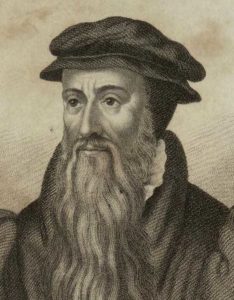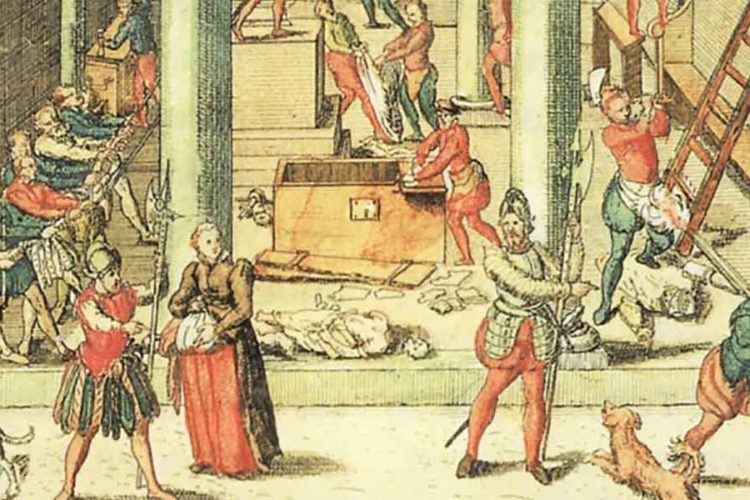About the Institute

As a group of scholars working on the Reformation and related studies, we are fortunate to be located in St Andrews: the historic heart of Scotland’s Renaissance and Reformation. The University (founded in 1413) is the oldest in Scotland, and it was also, in the sixteenth and seventeenth centuries, a stage on which humanists and reformers acted out their parts in some of the great crises of European intellectual history.
John Knox preached his first Protestant sermon here, and Andrew Melville, his successor as the dominant Scottish ecclesiastical figure of his era, was principal of St Mary’s College. In the centuries since the Reformation St Andrews has cultivated a tradition of excellence in Reformation studies. The foundation of the Reformation Studies Institute in 1993 reflected the university’s commitment to enhancing St Andrews’ established reputation in this field of scholarship.
The Institute has a distinctly international flavour, partly through our students, and partly through our close relationships with similar institutions elsewhere in Europe and in the United States. It sponsors a graduate seminar, conferences and visits from distinguished external academics. The Institute also publishes St Andrews Studies in Reformation History
St Andrews Cameron Fellowship in Early Modern History
The Department of Modern History at the University of St Andrews invites applications for the Cameron Fellowship in Early Modern History, to be taken up during either semester of the academic year 2025-2026.
The Fellowship is open to any academic in a permanent university post with research interests in any aspect early modern history through to ca. 1780. The financial aspect of the fellowship is a subsidy (up to £4000) towards the cost of travel to St Andrews and accommodation during your stay. The successful applicant is normally someone enjoying research leave from their own institution. The Fellowship carries with it no teaching duties; instead, the Fellow is expected to take part in the normal seminar life of the community of early modern historians during their stay in St Andrews. Fortnightly seminars, held on a Thursday evening, run from September–December, and February–May. You will also be invited to lead a workshop on your chosen research theme during your stay. Fellows are provided with computing facilities and office space in one of the buildings occupied by the department. The University Library and Martyrs’ Kirk have excellent collections for early modern historians.
You should send a letter of application by the advertised closing date, together with a scheme of research for the project on which you will be engaged during your time in St Andrews. You should also enclose a CV, together with the names of two academic referees.
The closing date for applications is 16 December 2024. Previous applicants should not be deterred from applying.
Further enquiries may be addressed to the Departmental Chair, Professor Emily Michelson ([email protected]). We look forward to receiving your applications.
Reformation Day Lecture 2020
Bruce Gordon (Yale), ‘Boundaries of Memory: The Mediaeval Bible in the Early Modern World’.
